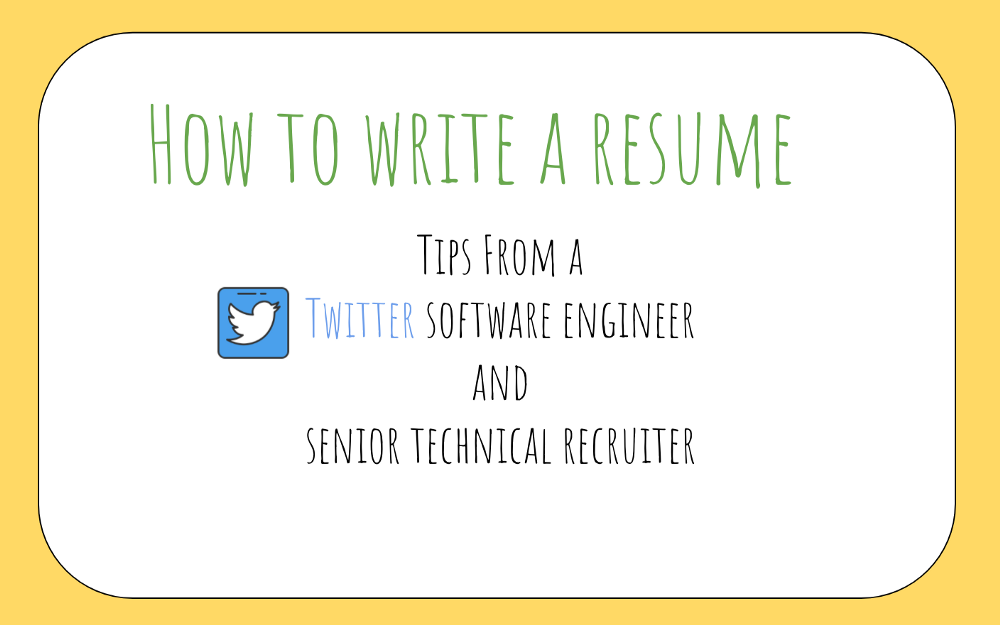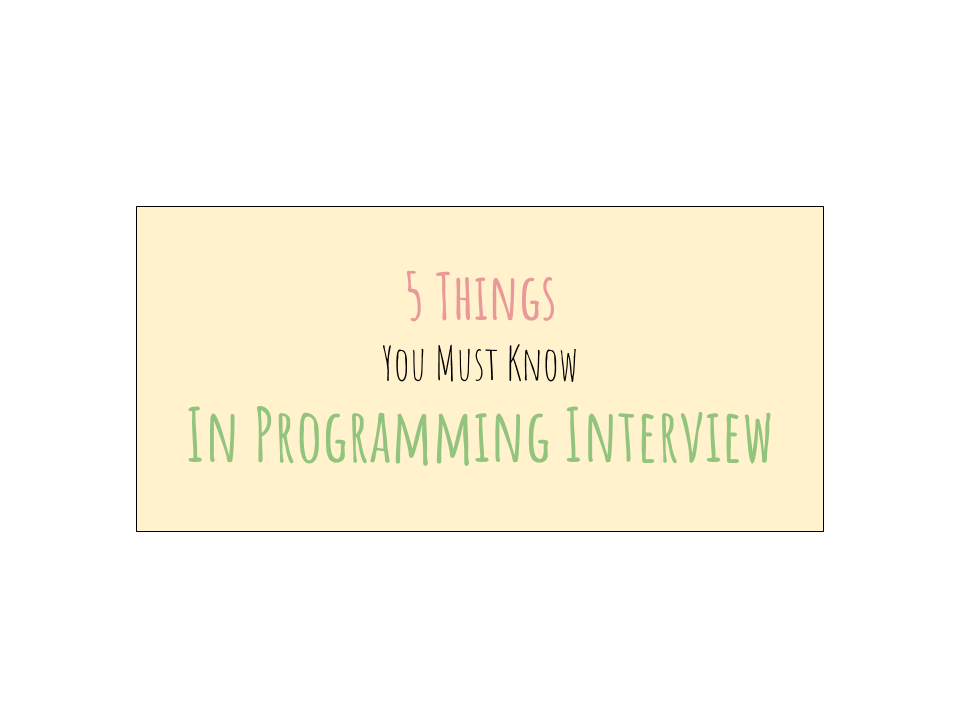Why Your Resume is Being Rejected
Your resume is your business card. Don't leave it to chance.
|
If you are a new grad looking for an internship or full-time position at a top-tier tech company, or you know someone who’s currently in the process of looking for a new job, then this article is for you. I summarize some of the top mistakes I see as a career coach and as someone who’s been on both sides of the metaphorical interviewing “table”.
Avoiding these mistakes is critical because if you are making any of these mistakes today, the chances are your resume is not getting picked up by the right people, and worse, you’re not getting the opportunity that you deserve.
Here’s a video I made on this same topic, if you prefer kick back and watch it:
https://www.youtube.com/watch?v=7l4WyLzj0V4&feature=emb_logo
Mistake 1: Too much fluff, not enough stuff
Many first-time candidates spend too much time on their resume! What I mean specifically is that they focus on the formatting, the color, the fonts, the layout, of the resume.
They’re so focused on the formatting of the resume that they couldn’t see the forest for the trees; they didn’t realize that their resume didn’t contain the right content for the jobs they wanted.
Why’s that important, you ask? In today’s market, trying to be a software engineer is a highly competitive industry. There were 23 million software developers in 2018, and this number is expected to reach 26.4 million by the end of 2019 and 27.7 million by 2023, according to this article. And it makes sense why many people are coveting jobs in the software engineering industry — high 6-figure salary, amazing health benefits, unlimited PTO, free snacks and food, among others.
Therefore, in a competitive, red-hot market, the thing you need to do to stand out is to focus on the actual content of your resume. What that means specifically is to pick up “meaty” or interesting projects that will hone your technical chops and beef up your portfolio. Here’s an example of a web crawler that I built to help me apply to companies and also beef up my resume.
Strong technical skills/experience makes you a much stronger and attractive candidate. Many fresh grads try to pad up their resume with non-tech related experience like social clubs. I don’t think those are unnecessary, so to speak. These experiences are valuable insights into your character, but if you’re trying to apply as a software engineer, what’s most important here is the technical content. Companies want to see your technical skills, can you write code, can you deliver a given assignment, can you get stuff done.
Mistake 2: Tutorial Hogs
Second most common mistake I see is that many people spend too much time on tutorials with no clear goals in mind. They’re the typical Udemy/Coursera/
However, the truth is usually not so rosy — about three weeks into the course, they give up.
They have learned the syntax of the language, how to set up the framework, but they haven’t actually worked on anything substantial or anything interesting with the knowledge that they have gained.
Now that is a problem because what happens is that you have a lot of “fringe” knowledge (things that few know a lot about), but you are not able to take that knowledge and apply it.
There’s something that we call in the industry as “applied intelligence” — can you apply your knowledge to a new domain? Take your knowledge about Python for example, and use that to automate your finances via a Python script.
If you can do so, then you’re presenting yourself as a holistic, technical-oriented problem solver. And that’s what a lot of companies are looking for.
Mistake 3: Missing the forest for the trees
Why limit your job search to only San Francisco or Seattle? Or even the US for that matter?
Most people make the mistake of applying only to the companies that they’ve heard of, like Google, Facebook or Twitter.
But the problem is: there are only a handful of top companies in the industry with even fewer job opportunities.
The truth is you have very limited set of openings, being competed away by a large pool of applicants from all over the world. The chances of getting an interview or even landing a job becomes extremely thin for the average Joe.
My recommendation is expand your horizons and search beyond just the companies you’ve heard of. Instead of just focusing on those top tech companies, open up your eyes and look across startups, midsize companies, non-tech companies because those are the best opportunities right now.
Starting somewhere small and building your experience along the way is a great way to bootstrap your career.
Starting somewhere small and building your experience along the way is a great way to bootstrap your career. It doesn’t really matter how much you get paid initially or what the title of the position really is, because once you get your foot in the door, you can learn and improve yourself to prepare for the job you want. That’s exactly what I did when I graduated from college — I didn’t have any job lined up. I then wrote a script that helped me apply to different companies, and finally a startup took a gamble on me and gave me a job. You can read more about my story here and how I finally landed at Twitter.
Mistake 4: Right Credentials, Wrong Job
My best analogy for this is: would you buy a shovel to build a door? Most likely no, but why would you apply for a machine learning specialist if you are a front-end engineer?
This baffles me as I’ve seen many great resumes come through the door for the wrong positions. Most of my friends have seen this happen as well, and the unfortunate truth is that, most companies will throw your resume in the trash if it’s not the right fit.
Some of my friends shyly confided in me that they’re hoping that the HR department would slot their resume in the right hands somehow.
I’m sorry, but they won’t.
If you’re a software engineer and you’re trying to apply for a machine-learning positioned, ideally you should have on your resume here some relevant experience related to machine learning. Either you have taken some internship projects or you have done some of machine learning related experience in your current job.
Recommendation
My personal recommendation in this case is to:
- Figure out what are the skill sets that you have and how your skill sets match up with the position
- Get a friend to review your resume with you and see where the gaps are
If you don’t have a friend (sad but OK), then ping me here — I can’t promise I’ll find you a friend, but I can help review your resume.
Thank you
Thank you for reading thus far :) If you enjoyed this article, please consider buying me a coffee here (coffee helps me write): https://www.buymeacoffee.com/zhiachong


